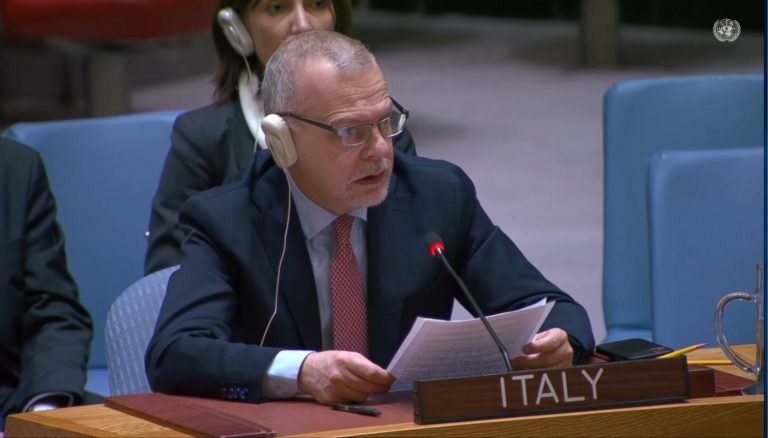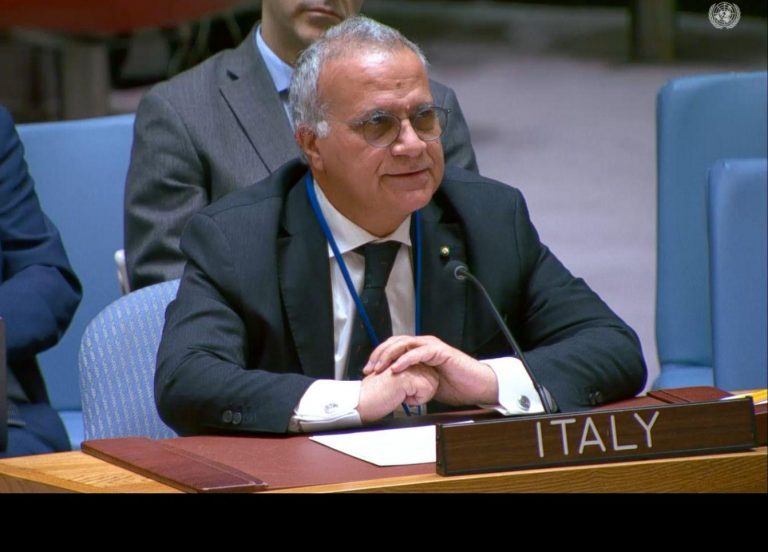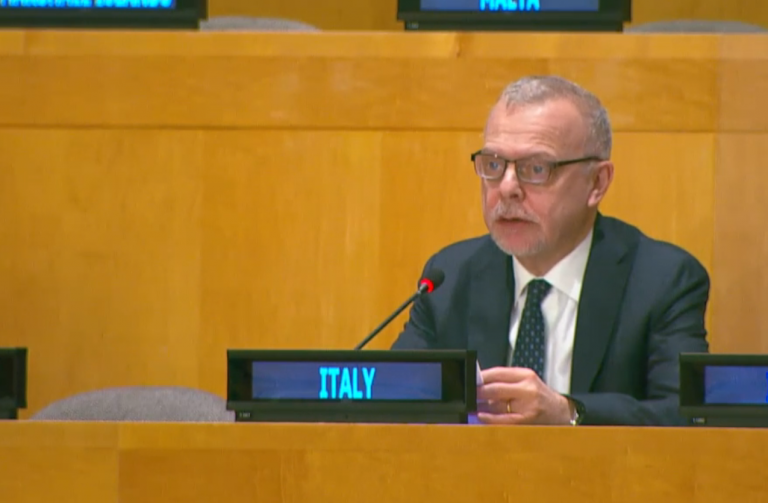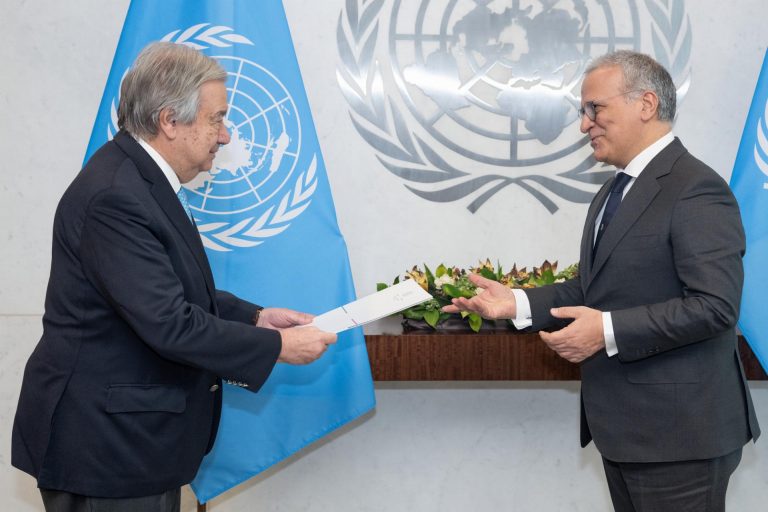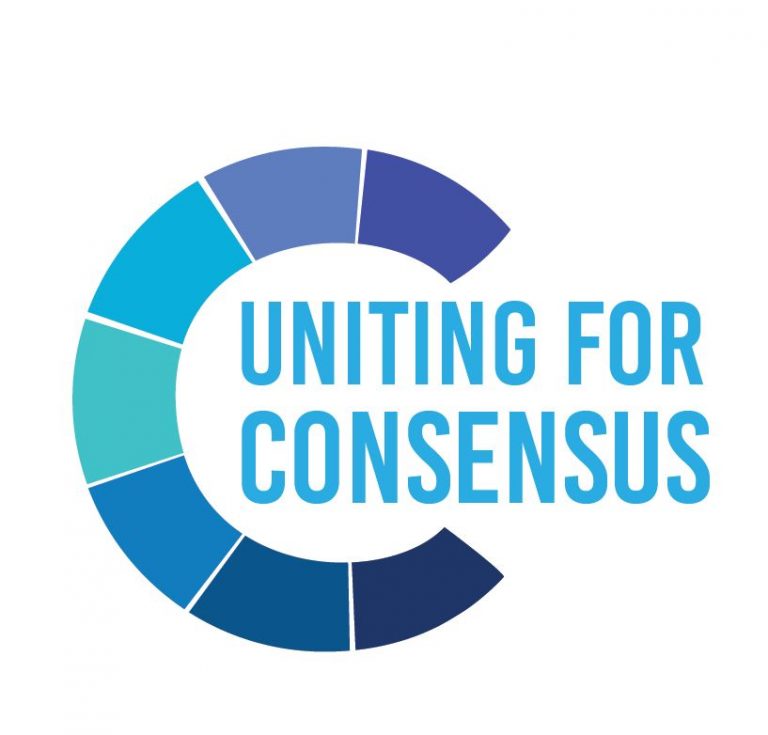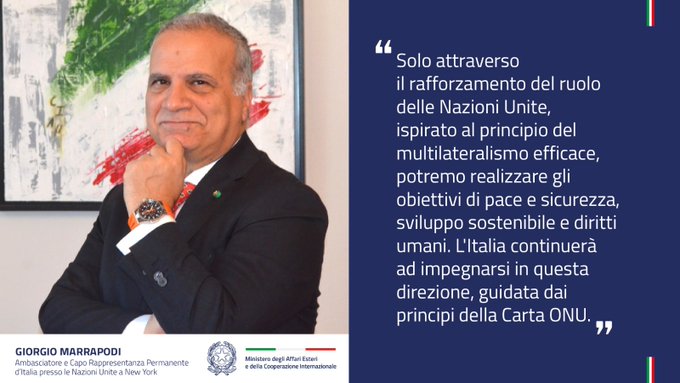CHIARA GISINTI
Thank you Madame Chair, Honorable Excellencies and Delegates,
This year marks the 35th anniversary of the adoption of the Convention on the Rights of the Child, and, today, as we face unprecedented global challenges, it is more essential than ever to rearm the rights and values enshrined therein, because, even though children’s rights are universal and timeless, the world is changing, and with it, the environment in which these rights are realized.
As Youth Delegates, we believe that in particular it is pivotal at this time to strengthen the protection of the right to education set out in Article 28 of said Convention to better consider the evolving role of technology and the importance of climate awareness. Indeed, the foundation of children’s empowerment lies in ensuring access to high-quality education on such critical themes through innovative solutions that can equip the newer generations to thrive in this rapidly changing world.
The digital space has become an integral part of children’s lives, a powerful tool for advancing education and granting access to vast amounts of information. It is an opportunity that we must seize, but also one that has its risks. In an era of misinformation and disinformation, we must educate children to recognize harmful or misleading content and, more in general, prioritize digital literacy for children, moving beyond the stereotype that younger generations are inherently tech-savvy.
How do we achieve this? We need to improve infrastructures, we need to train the educators, we need comprehensive education curricula for the digital age, and, also, to figure out ways on how to use artificial intelligence for the benefits of education. For example, Italy has made investments to upgrade digital infrastructure in schools and a pilot program is underway to use AI tools to personalize education with the aim of improving outcomes and supporting students with disabilities.
Building on these efforts, we urge States to effectively fulfil the commitments outlined in the Global Digital Compact, in particular the ones related to “strengthen legal and policy frameworks
to protect the rights of the child in the digital space”, with a special attention to close the digital divide.
ANDREA GRANATA
Dear delegates,
It is essential for us to rearm the indivisibility, interdependency, and interrelation of Children’s rights, like all human rights. Specifically, as we recall the Convention and the General Comment 26, we share the fundamental conviction that a clean, healthy and sustainable environment is a human right itself.
In this concern, we recognize children as agents of change and we call for intergenerational dialogue and engagement, including with and among children, youth and older persons. These are the values the Declaration on future generations embodies. These are the starting points for ensuring a more representative and effective decision making.
As Youth Delegates of Italy, we are deeply convinced that in order to concretely enhance the legal path of children towards the achievement of their full potential, a dual, comprehensive and structural approach shall be embraced.
On the one hand, our core objective is clear: ensuring a significant weight to children’s views and perspectives in the design and implementation of measures aimed at addressing the environmental challenges that are fundamentally shaping their and our lives.
On the other hand, however, we should feel urged to provide adequate means for child empowerment to effectively take place. A rights-based environmental education should be transformative, inclusive, and child-centered. Teaching materials should provide scientifically accurate, up-to-date and age-appropriate climate knowledge. For this reason, we must ensure that
Children have access to child-friendly and reliable environmental information, including about the causes, effects and actual sources of climate and environmental harm, as well as on adaptive responses and sustainable lifestyle choices.
In conclusion, we call for forward-looking, evidence-based impact assessments, aimed at fostering stronger anticipatory risk analyses.
Dear delegates, Investing in innovative and accessible means of education is pivotal to cultivate a digital and sustainable environment t for all children, and to ultimately achieve intergenerational justice!








